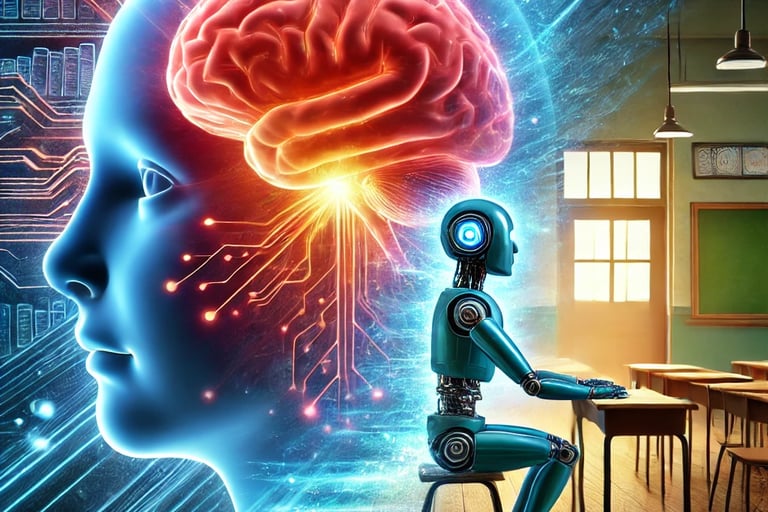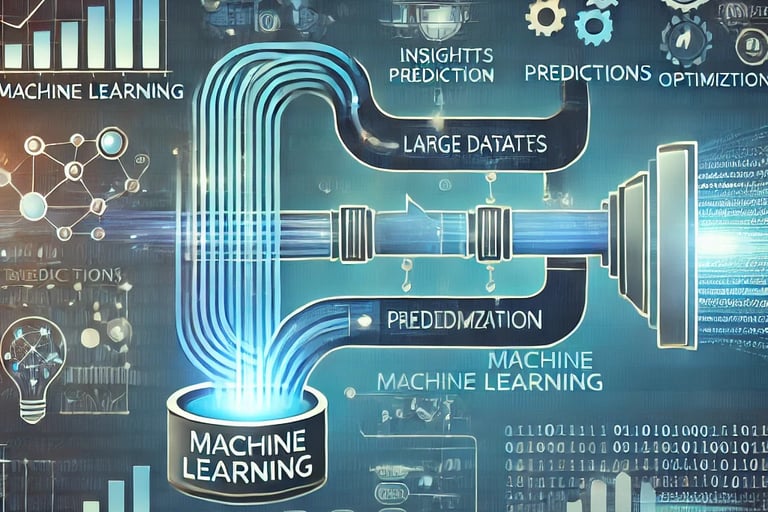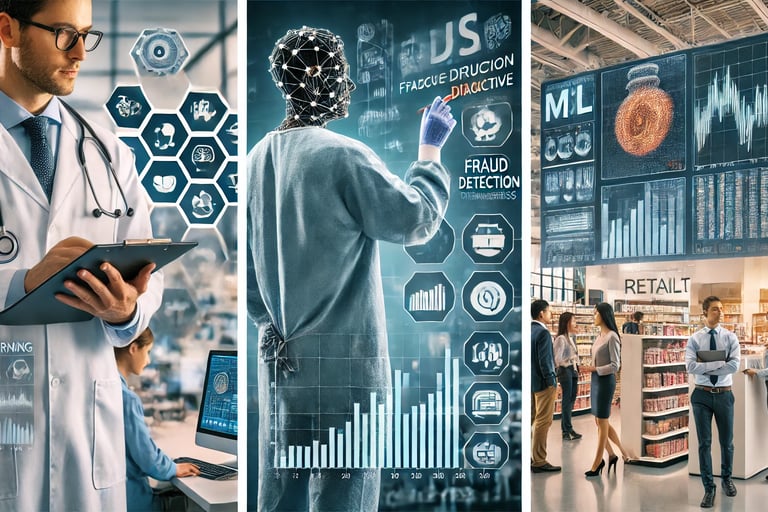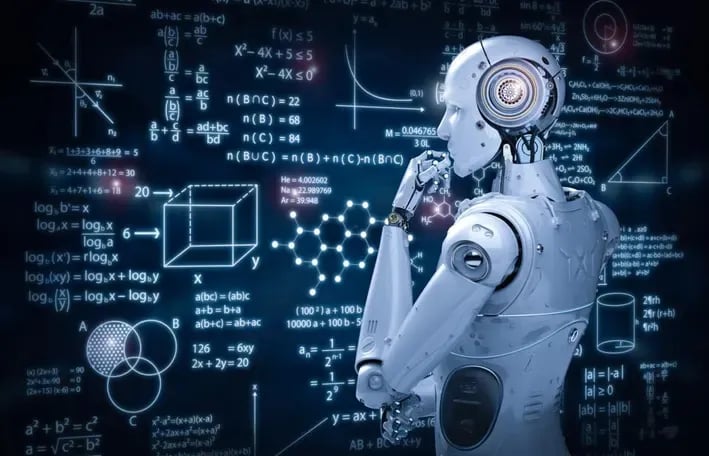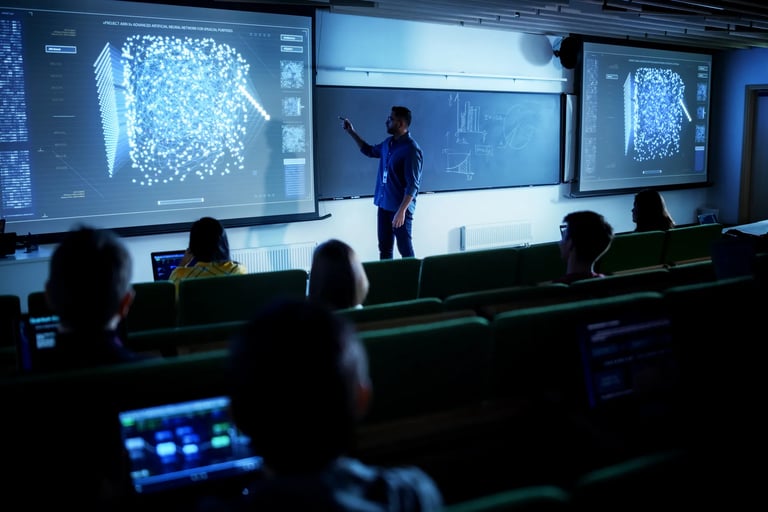Is Machine Learning Taking Over Human Learning?
As technology continues to evolve, the relationship between machine learning and human learning is becoming a critical area of discussion. The rapid rise of machine learning (ML) has sparked discussions about its potential to overshadow human learning.
ENTERTAINMENT
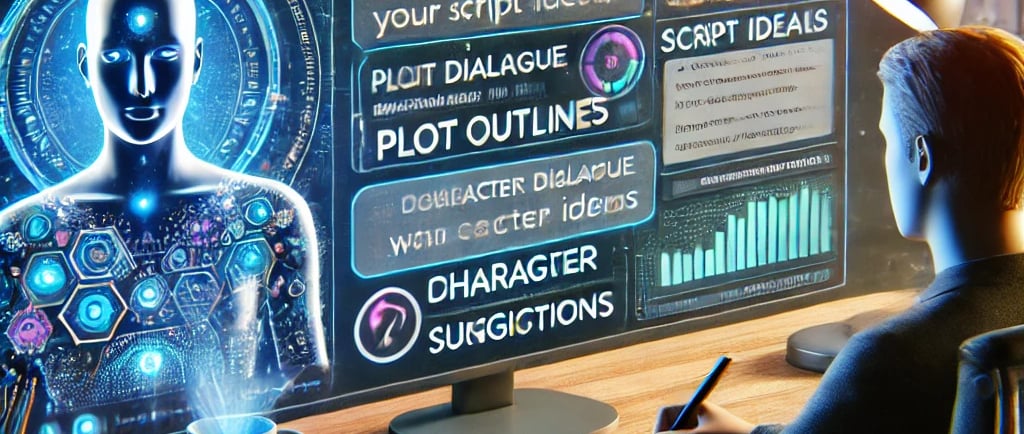

While Machine Learning revolutionizes industries by analyzing vast amounts of data, identifying patterns, and making predictions, it is important to recognize that it complements, rather than replaces, human learning. While machines excel in processing data and automating tasks, human learning is driven by creativity, intuition, and critical thinking—qualities that ML lacks.
The synergy between human intelligence and machine learning has the potential to transform education and industry by personalizing learning experiences and automating routine tasks, allowing humans to focus on innovation and problem-solving. Rather than replacing human learning, ML enhances it, driving progress and efficiency.
Machine learning is not merely a disruptive force; it is a catalyst for redefining how we learn and work. By enhancing data analysis, providing personalized experiences, and improving accessibility, ML empowers individuals to achieve their full potential. However, the essence of human learning—its creativity, empathy, and ethical grounding—remains irreplaceable.
The future lies in harnessing the strengths of both, creating a dynamic partnership that drives innovation, fosters personal growth, and reshapes industries. Embracing this hybrid model ensures a future where technology enhances human capabilities rather than replacing them.
Challenges and Limitations
Despite its many benefits, machine learning (ML) has certain limitations that must be considered. One of the primary challenges is that ML lacks deep contextual understanding, empathy, and moral judgment—traits that are essential in human decision-making. While ML systems excel at processing large datasets and identifying patterns, they do not have the ability to understand the nuances of human emotions or make value-based decisions.
Additionally, an over-reliance on ML tools can lead to the erosion of critical thinking and problem-solving skills. As people become more dependent on automated systems for tasks like analysis and decision-making, there is a risk that they may lose the ability to think critically, question assumptions, and solve complex problems independently. It is important to strike a balance, using ML as a tool to support human judgment, rather than replace it entirely.
The Future: A Hybrid Approach
The future of learning is poised to embrace a hybrid model, one that effectively leverages ML for data-driven and repetitive tasks, while empowering humans to focus on areas requiring higher-order cognitive skills, creativity, emotional intelligence, and ethical decision-making. By automating routine processes, ML enables individuals to dedicate more time to innovation, critical thinking, and fostering interpersonal relationships. This harmonious blend of technological efficiency and human ingenuity will pave the way for transformative advancements in education, industry, and society at large.
Industry-Specific Applications in the US
Healthcare: ML-driven predictive diagnostics and personalized treatment plans are revolutionizing patient care, enabling earlier detection and more effective interventions.
Finance: Advanced fraud detection and dynamic risk assessment improve security and streamline financial decision-making, ensuring smooth operations.
Retail: By analyzing customer behavior and optimizing inventory management, ML enhances efficiency, drives sales, and creates more personalized shopping experiences.
The Unique Role of Human Learning
Human learning encompasses knowledge acquisition, creativity, emotional intelligence, and ethical decision-making—qualities crucial for navigating complex societal and professional challenges. Unlike ML, human learning relies on context, empathy, and critical thinking.
How Machine Learning Enhances Human Learning
ML often acts as a powerful tool to support human learning. Here are key ways it contributes:
Personalized Learning Platforms like Khan Academy and Coursera use ML to tailor educational content, optimizing learning outcomes for individual users.
Real-Time Feedback ML systems provide instant feedback, enabling students and professionals to identify and correct errors swiftly.
Improved Accessibility Tools like speech-to-text and translation apps break down language and physical barriers, democratizing education.
What is Machine Learning?
Machine learning (ML) is a branch of artificial intelligence (AI) that focuses on enabling systems to learn and improve from experience without being explicitly programmed. Instead of following predetermined rules, ML algorithms analyze large datasets to identify patterns, draw insights, and make data-driven predictions or decisions.
For example, ML powers personalized recommendations on streaming platforms by learning user preferences, enables autonomous vehicles to recognize objects and navigate safely, and drives predictive analytics in industries like healthcare and finance. By continuously refining their models with new data, ML systems become more accurate and efficient over time, optimizing a wide range of tasks and operations.
